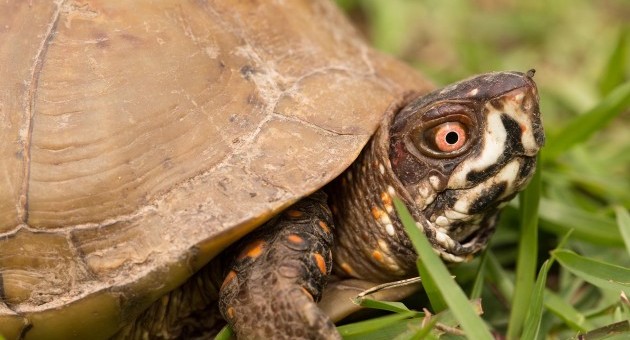Mister/Madam Chairman, Members of the CGA Environment Committee,
Thank you for the opportunity to offer testimony regarding HB 5368. I represent the Connecticut Veterinary Medical Association, which includes over 95% of Connecticut-licensed veterinarians among its members.
We believe HB 5368 is a necessary and measured approach to addressing the growing problem of unregulated transport of animals into Connecticut. These animals are imported in a manner which ensures they remain hidden from oversight by Connecticut animal health authorities and further, they often have undeclared health problems which lead to disease exposure for Connecticut animals and unexpected veterinary medical costs for unsuspecting animal owners.
For several years, and especially since the 2005 Hurricane Katrina disaster, an informal, unregulated industry has developed which functions to move animals into the State of Connecticut from other states. This industry is known as "pet rescue." Primarily through web sites, Connecticut citizens interested in adopting an out-of-state pet may arrange for its delivery into Connecticut without oversight by Connecticut animal health authorities and without advance examination by a Connecticut licensed veterinarian. Often, intermediaries based in Connecticut or elsewhere, facilitate animal importation without having physical custody of the animals, and in most cases without them ever having custody. The transport process is accomplished by commercial delivery companies and private drivers that shuttle dogs a few hundred miles each, transferring animals to the next driver at pre-determined rendezvous points. There are also general aviation pilots and at least three general aviation organizations that have "pet rescue" as their primary function.
Dogs enter the transport network from out-of-state municipal pounds, private out-of-state brick-and-mortar shelters, private out-of-state individual "rescue" organizations or through individuals associated with such groups, individuals or groups involved with a particular breed "foster" care and from sales directly from commercial breeding operations. Indeed, some animals are bred specifically for transport and characterization of these animals as needing rescue is misleading.
A close look at pet transport reveals a plethora of unintended and negative consequences including inhumane animal welfare practices, circumvention of disease control regulations and questionable financial transactions that harm Connecticut animal owners and animals. These include:
1. Animals arrive with undisclosed diseases & deformities and new owners are subject to unexpected and unrecoverable costs of veterinary care, as well as exposing animals they already own to disease. Novel diseases may travel with these animals and these pose an emergent risk to animal and/or public health, risks local veterinarians and physicians may not immediately recognize. Animal owners often have no recourse and may also feel guilty about complaining about an animal's undisclosed medical conditions. Some of these animals are then surrendered to animal shelters here.
2. Connecticut-source animals located in Connecticut brick & mortar shelters and municipal pounds are passed over for adoption when large numbers of out-of-state animals are imported. Connecticut citizens thus indirectly subsidize mitigation of animal control issues in exporting states while our animal control costs are higher, because Connecticut source animals remain in shelter longer and are harder to find homes for. Some of these must wait long periods for adoption and/or are euthanized.
Thus continued unregulated animal importation exposes Connecticut animals to disease, is unfair to citizens surprised by undisclosed medical issues and the costs to treat these, is inhumane To Connecticut source animals by decreasing their chance of adoption and shifts the cost of animal control activities from other states to our state. HB 5368 will allow animal health officials to control animal importation, prevent disease transmission, help ensure humane transport standards, protect Connecticut animal owners and animals, reduce Connecticut animal control costs and minimize the surrender of newly imported animals. Thank you.
Sincerely,
Arnold L. Goldman DVM, MS
Eva Ceranowicz DVM
Robert Belden DVM
Gayle Block DVM
Connecticut Veterinary Medical Association
 |
Like this article? Don’t forget to share, like or follow us |
 |
NAIA WEEKLY ROUNDUP
FEATURED & LATEST ARTICLES
GET THE NAIA WEEKLY ROUNDUP VIA EMAIL FOR FREE
Stay Connected with The NAIA: Sign Up for The Weekly Roundup
Join our FREE newsletter and community of animal advocates and receive The NAIA Weekly Roundup straight to your inbox. Stay in the loop with the latest news, events, and ways you can make a difference in the lives of animals. Sign up now to stay informed to create positive change!
Sign Up




 A Question of Neglect, A Legendary Primatologist Passes Away, and More!
A Question of Neglect, A Legendary Primatologist Passes Away, and More!
 Shelter Spay Pushback, A Contentious Ostrich Cull, and More!
Shelter Spay Pushback, A Contentious Ostrich Cull, and More!
 Bad Dog Stories, Goodbye Cephalopod, and More!
Bad Dog Stories, Goodbye Cephalopod, and More!
 A Conference Call for You, A Fallen Elephant, and More!
A Conference Call for You, A Fallen Elephant, and More!


